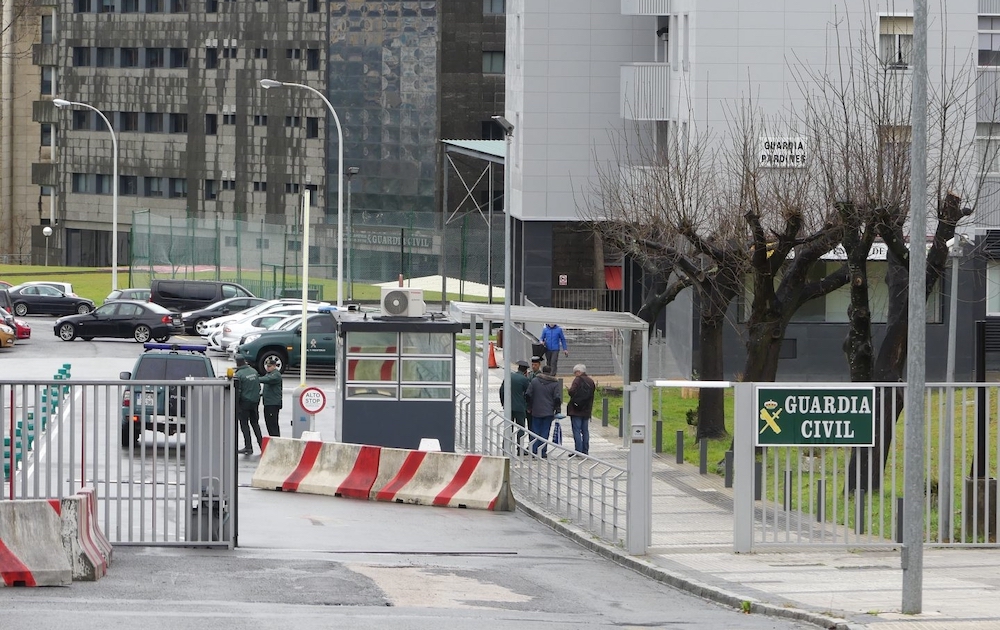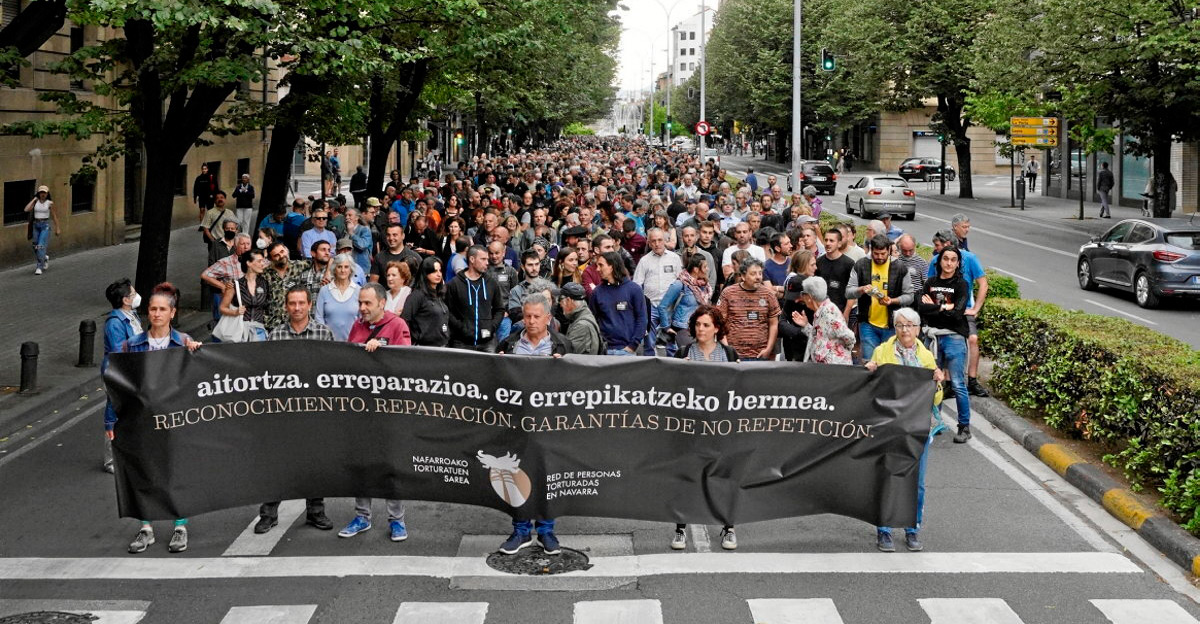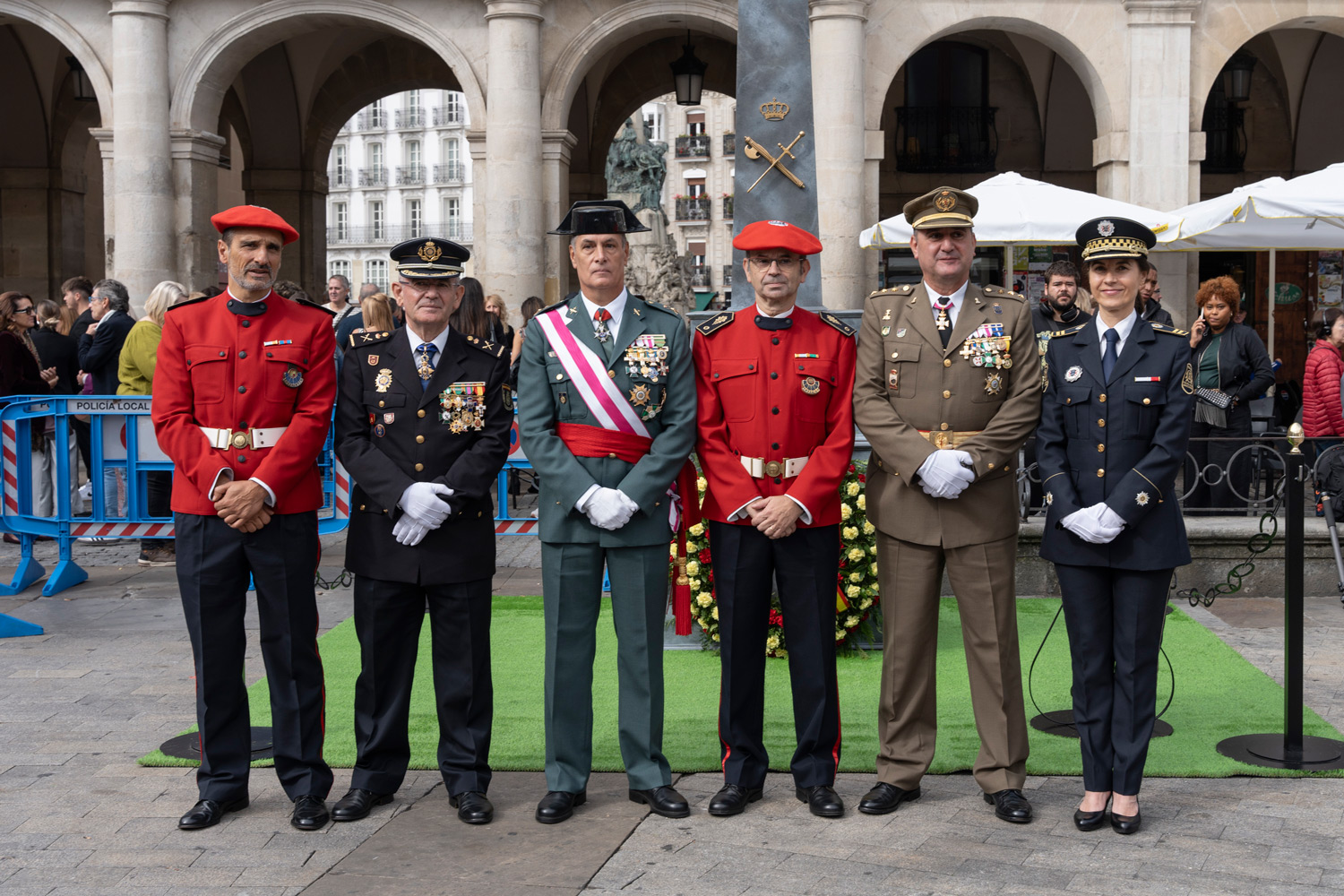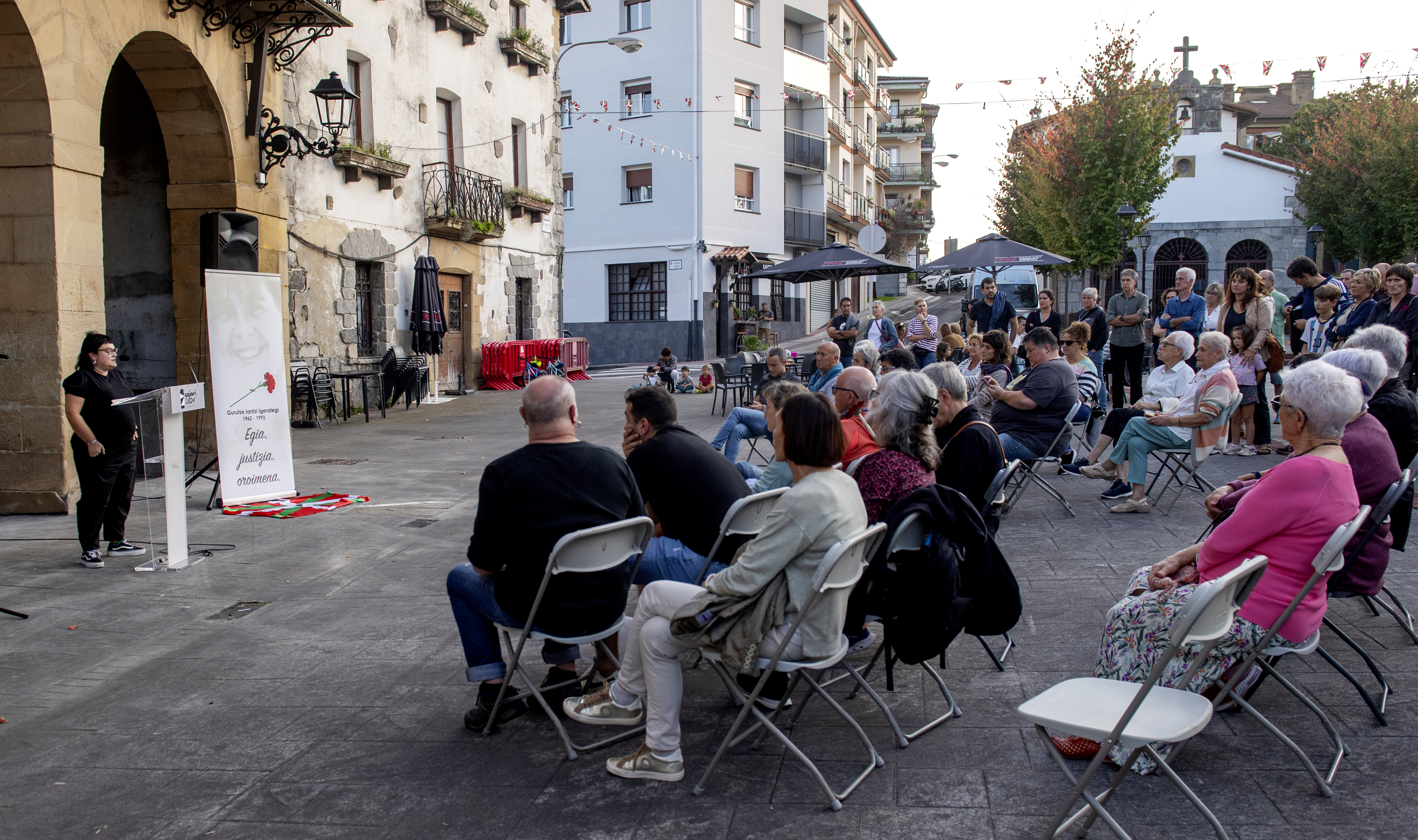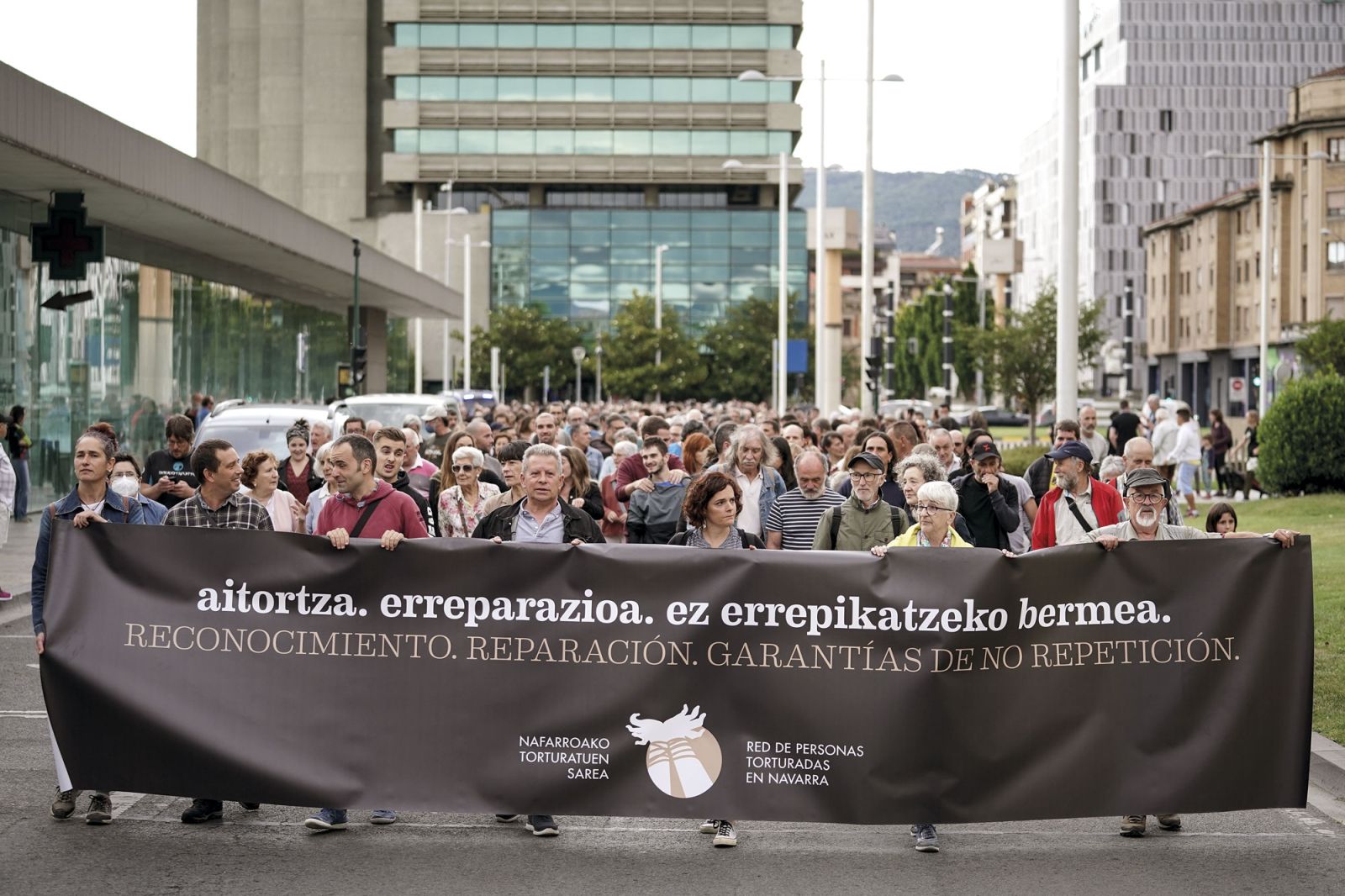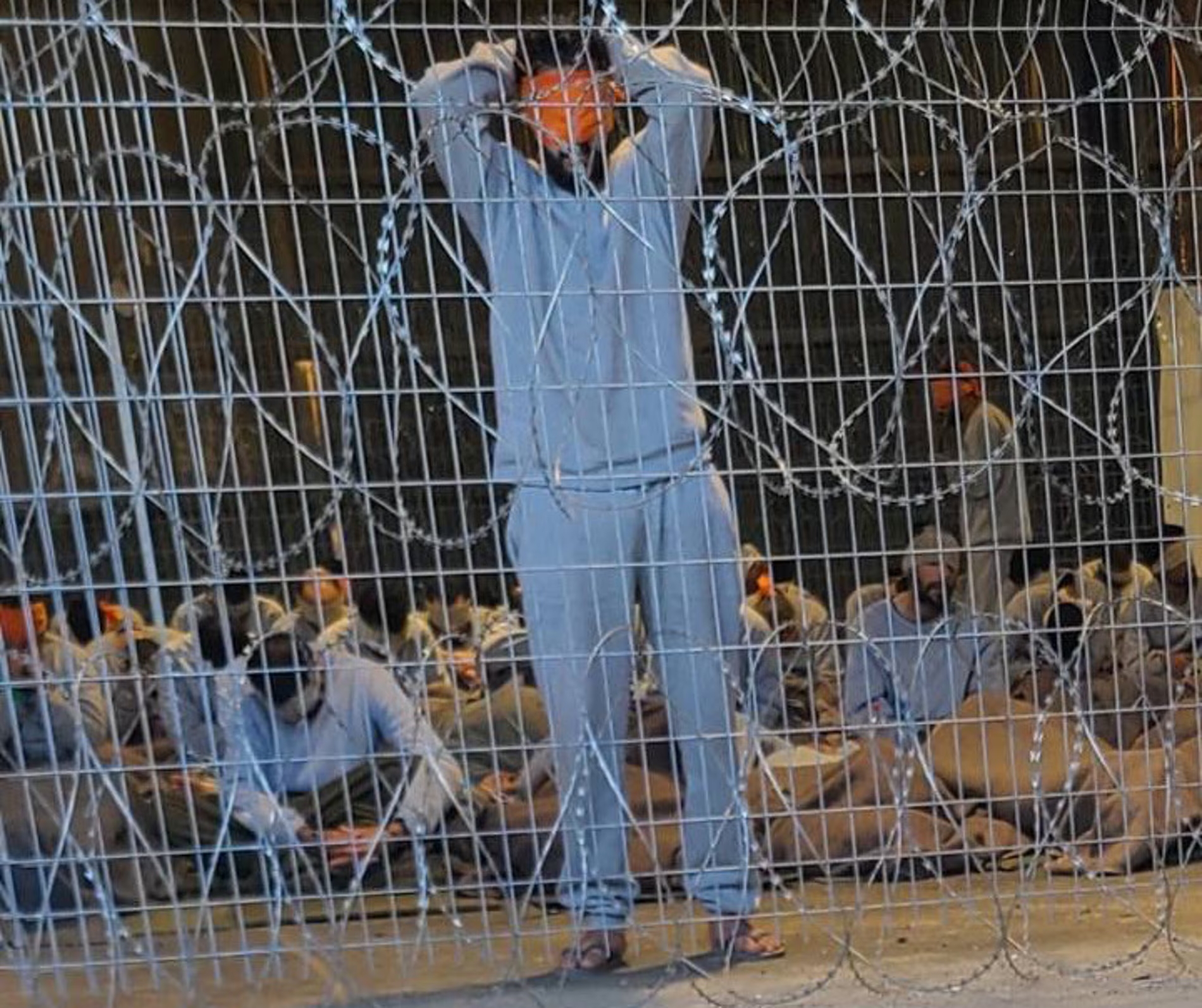Reopens the torture box "Where's Mikel?" movies
- Where is Mikel? the premieres of the film, among other things because it has been among the ten most viewed films in the Spanish state, “and it has only been screened in fourteen state halls”, the producers have underlined. And, as in the film Mikel's nephews Zabraise, the premiere has reopened the torture box in Basque society. And a little bit in Spain.

Irene Montero and Pablo Iglesias, Vicelehendakari and Minister of Equality of the Government of Spain respectively, attended one of the sessions that took place on Friday in Madrid. According to reports Ahotsa.info, in the final round of the film, Pablo Iglesias spoke by saying: “A democracy cannot allow the use of torture to become a judicial tool to inform the most cruel terrorist; and as a member of the government, I mean that this cannot be forgotten, it is a disgrace to our democracy.”
On Saturday, Iglesias posted the following message on Twitter: “Defending democracy is also looking first and foremost at the darkest side of our history: torture and state terrorism. Yesterday we were at the premiere of Non Dago Mikel?. Congratulations to all those who have made this essential documentary possible.”
The sister of Mikel Zabascene, Idoia Zabascene, has valued Churches' statements, but has said that it is not enough and has asked the Spanish Government to go further: "It is not our first need or our first desire to gain recognition or reparation, but to know the truth, to investigate what happened to Mikel. If these statements are true, take the necessary steps to clarify the case," he told Euskadi Irratia.
Zabascene and Arretxe
In the documentary, torture is the main protagonist of the film. And more specifically, torture at the headquarters of the Intxaurrondo Civil Guard. History is known, images and voices are developing, minute by minute, a message as simple as hard, trapping the viewer into that terrible network, dancing the memory of those who lived those 1985 events and immersing the new generations in that harsh environment; and in any case, stirring the viewer's depths. The journalist participated in one of the screenings of Friday afternoon in Pamplona and at the end the film ended with the applause of the spectators. "Uf, hard! It was a general comment on the comments we were leaving.
The reports of torture of those arrested in that police operation are terrible, among others, those of Idoia Aierbe, a colleague of Zabraise or Mikel's brother. But the report of torture is by Ion Arretxe, who died in 2017, who reported how normal ten day "hell" lived in Intxaurrondo. In 2015 he published The Shadow of the Walnut, a book in which he describes what he lived there.
Impunity
It all happened in the "operation against ETA," but none of those arrested had anything to do with ETA or the rest of the organization. 36 years later, the Spanish State has not yet acknowledged that Mikel Zabraise was killed in Intxaurrondo during the torture that was taking place. In any case, it reflects well what happened to those who considered ETA. The comments of the captain of the Civil Guard, Pedro Gómez Nieto, on the telephone murder of CESID Colonel Luis Alberto Perote, have been heard these days. Neither that nor many other evidences have been enough for the case, which was closed 25 years ago, to be reopened.
This is another of the great phenomena of the fight against ETA seen in this film: impunity or impunity. Civil Guard lawyer Jorge Argote and PSOE Interior Minister José Barrionuevo speak of impunity in the film. However, they are not things of the past, neither then nor now because the State shows no willingness to investigate.
One of its most prominent manifestations is the reform of the Law on Official Secrets of Spain. Four times they have tried to do so in the Congress of Deputies, and in all of them they have failed, mainly because of the obstacles that the PSOE and pp have put in. Congress approved the fourth reform session eight months ago – in which the PNV has been working since 2016 – but, as on previous occasions, the Congress Bureau has not yet dealt with it. It is also curious in the judicial sphere how quickly the prosecution takes action in many cases, and in others, how slow or simply the lack of intervention.
In 2006, Baltasar Garzón, then star judge, suffered a kind of revelation and drafted a practice that guaranteed the rights of those detained for terrorism. The same judge saw hundreds of incommunicado detainees pass through his room, many with obvious signs of ill-treatment,... [+]
“In the newsletter today at noon, you will see the mayor of your capital, offering the main plaza of the city to the military body that tortured us. In today’s information at noon, you will see the structure that murdered our friends and relatives unravel through our... [+]
“In the newsletter today at noon, you will see the mayor of your capital, offering the main plaza of the city to the military body that tortured us. In today’s information at noon, you will see the structure that murdered our friends and relatives unravel through our... [+]
When we talk publicly about torture, we realize how much society embraces the opinion that the “system” itself puts into effect on this issue. It uses a wide range of ministers and advisers, judges and experts, all with the help of the organic media, of course. And it has to... [+]








